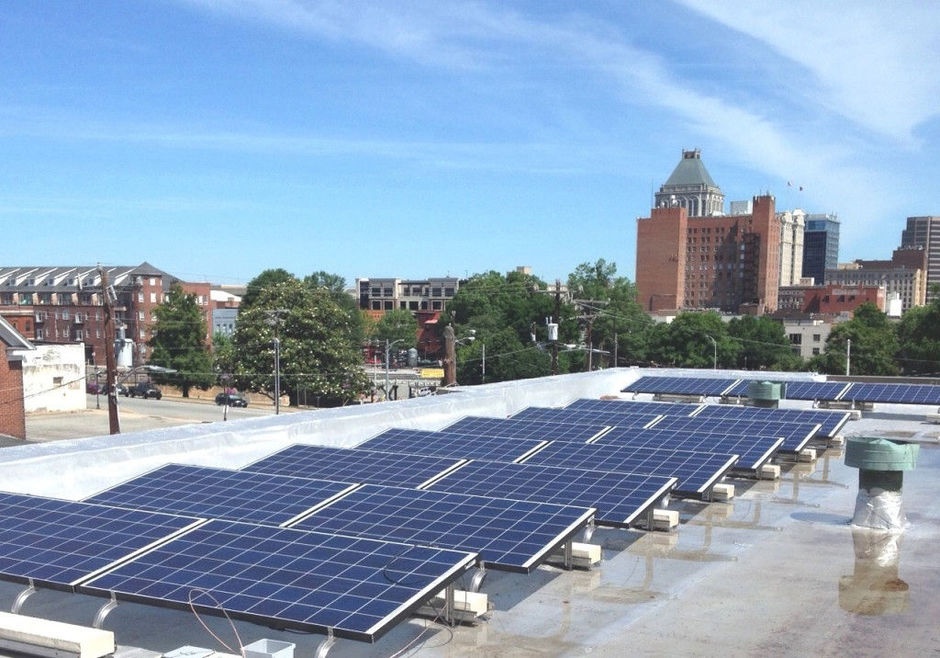Nonprofit loses first round in fight with N.C. over third-party solar power sales

NC WARN installed this solar power system on the roof of a Greensboro church as part of its effort to challenge the state's prohibition on such arrangements. Duke Energy is now asking state regulators to fine the nonprofit and order it to stop selling the power generated by the system back to the church. (Photo courtesy of NC WARN.)
The North Carolina Utilities Commission ruled against a nonprofit that installed solar panels on the roof of a Greensboro church and sold it the power, saying the project violates the state's private monopoly utility system.
Last June, the Durham-based climate watchdog group NC WARN began selling electricity to Faith Community Church, a largely African-American congregation in Greensboro, to recoup the cost of the 5.2 kilowatt photovoltaic system it had installed there. At the same time, NC WARN asked the NCUC for a declaratory ruling to clarify state policy on third-party sales. The group argues it wasn't acting as a utility but rather providing no-money-down financing for the church's purchase of the panels.
The ruling came down on April 15. It stated:
NC WARN's electric sales to the public (the Church) is impermissible due to the fact that the Church is located within a service area that has been assigned exclusively to Duke. … NC WARN knowingly entered into a contract to sell electricity in a franchised area and sold electricity without prior permission from the commission subjecting itself to sanctions.
Last October, Duke Energy submitted a filing with the NCUC asking regulators to issue a cease and desist order against NC WARN, writing that the group's "blatant disregard for the law and this Commission's authority should not be condoned." It also called on the NCUC to impose stiff civil penalties of up to $1,000 for every day the group sold power to the church.
In the end, the NCUC imposed a smaller fine of $200 a day — a total of about $60,000 — and said it would suspend the fine if the group stops selling power and meets other conditions.
But NC WARN says it plans to keep fighting.
"This case is going to court," said Executive Director Jim Warren. "In other states, regulators or courts have agreed that third-party financing of rooftop solar is permissible and in the public interest."
Besides North Carolina, the other states where third parties are still banned from selling electricity directly to customers are Florida, Kentucky and Oklahoma. A bill to allow third-party financing in North Carolina was introduced in the legislature last year but died in committee.
Georgia and South Carolina recently revised their laws to allow third-party sales, but an initiative to put third-party solar sales on the ballot in Florida this year failed to get enough signatures.
Formally supporting NC WARN in its case were the nonprofit climate action group N.C. Interfaith Power & Light, represented by the Southern Environmental Law Center, as well as the Energy Freedom Coalition of America and the N.C. Sustainable Energy Association, which represent the solar power industry. A number of faith, environmental and other groups also offered informal support.
Tags
Sue Sturgis
Sue is the former editorial director of Facing South and the Institute for Southern Studies.
